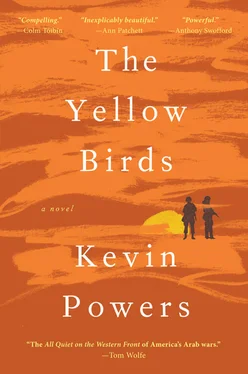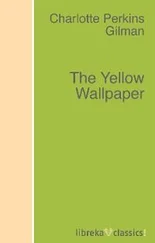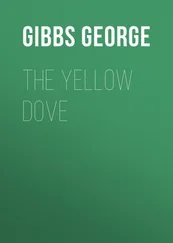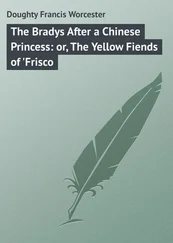Kevin Powers
The Yellow Birds
A yellow bird
With a yellow bill
Was perched upon
My windowsill
I lured him in
With a piece of bread
And then I smashed
His fucking head…
— Traditional U.S. Army Marching Cadence
To be ignorant of evils to come, and forgetfull of evils past, is a mercifull provision in nature, whereby we digest the mixture of our few and evil dayes, and our delivered senses not relapsing into cutting remembrances, our sorrows are not kept raw by the edge of repetitions.
— Sir Thomas Browne
Al Tafar, Nineveh Province, Iraq
The war tried to kill us in the spring. As grass greened the plains of Nineveh and the weather warmed, we patrolled the low-slung hills beyond the cities and towns. We moved over them and through the tall grass on faith, kneading paths into the windswept growth like pioneers. While we slept, the war rubbed its thousand ribs against the ground in prayer. When we pressed onward through exhaustion, its eyes were white and open in the dark. While we ate, the war fasted, fed by its own deprivation. It made love and gave birth and spread through fire.
Then, in summer, the war tried to kill us as the heat blanched all color from the plains. The sun pressed into our skin, and the war sent its citizens rustling into the shade of white buildings. It cast a white shade on everything, like a veil over our eyes. It tried to kill us every day, but it had not succeeded. Not that our safety was preordained. We were not destined to survive. The fact is, we were not destined at all. The war would take what it could get. It was patient. It didn’t care about objectives, or boundaries, whether you were loved by many or not at all. While I slept that summer, the war came to me in my dreams and showed me its sole purpose: to go on, only to go on. And I knew the war would have its way.
The war had killed thousands by September. Their bodies lined the pocked avenues at irregular intervals. They were hidden in alleys, were found in bloating piles in the troughs of the hills outside the cities, the faces puffed and green, allergic now to life. The war had tried its best to kill us all: man, woman, child. But it had killed fewer than a thousand soldiers like me and Murph. Those numbers still meant something to us as what passed for fall began. Murph and I had agreed. We didn’t want to be the thousandth killed. If we died later, then we died. But let that number be someone else’s milestone.
We hardly noticed a change when September came. But I know now that everything that will ever matter in my life began then. Perhaps light came a little more slowly to the city of Al Tafar, falling the way it did beyond thin shapes of rooflines and angled promenades in the dark. It fell over buildings in the city, white and tan, made of clay bricks roofed with corrugated metal or concrete. The sky was vast and catacombed with clouds. A cool wind blew down from the distant hillsides we’d been patrolling all year. It passed over the minarets that rose above the citadel, flowed down through alleys with their flapping green awnings, out over the bare fields that ringed the city, and finally broke up against the scattered dwellings from which our rifles bristled. Our platoon moved around our rooftop position, gray streaks against the predawn light. It was still late summer then, a Sunday, I think. We waited.
For four days we had crawled along the rooftop grit. We slipped and slid on a carpeting of loose brass casings left over from the previous days’ fighting. We curled ourselves into absurd shapes and huddled below the whitewashed walls of our position. We stayed awake on amphetamines and fear.
I pushed my chest off the rooftop and crested the low wall, trying to scan the few acres of the world for which we were responsible. The squat buildings beyond the field undulated through the tinny green of my scope. Bodies were scattered about from the past four days of fighting in the open space between our positions and the rest of Al Tafar. They lay in the dust, broken and shattered and bent, their white shifts gone dark with blood. A few smoldered among the junipers and spare tufts of grass, and there was a heady mix of carbon and bolt oil and their bodies burning in the newly crisp air of morning.
I turned around, ducked back below the wall and lit a cigarette, shielding the cherry in my curled palm. I pulled long drags off it and blew the smoke against the top of the roof, where it spread out, then rose and disappeared. The ash grew long and hung there and a very long time seemed to pass before it fell to the ground.
The rest of the platoon on the roof started to move and jostle with the flickering half-light of dawn. Sterling perched with his rifle over the wall, sleeping and starting throughout our waiting. He jerked his head back occasionally and swiveled to see if anyone had caught him. He showed me a broad disheveled grin in the receding dark, held up his trigger finger and daubed Tabasco sauce into his eyes to stay awake. He turned back toward our sector, and his muscles visibly bucked and tensed beneath his gear.
Murph’s breath was a steady comfort to my right. I had grown accustomed to it, the way he’d punctuate its rhythm with a well-practiced spit into an acrid pool of dark liquid that always seemed to be growing between us. He smiled up at me. “Want a rub, Bart?” I nodded. He passed me a can of care-package Kodiak, and I jammed it into the cup of my bottom lip, snubbing out my cigarette. The wet tobacco bit and made my eyes water. I spat into the pool between us. I was awake. Out of the gray early morning the city became whole. White flags hung in a few scattered windows in the buildings beyond the bodies in the field. They formed an odd crochet where the window’s dark recesses were framed by jagged glass. The windows themselves were set into whitewashed buildings that became ever brighter in the sun. A thin fog off the Tigris dissipated, revealing what hints of life remained, and in the soft breeze from the hills to the north the white rags of truce fluttered above those same green awnings.
Sterling tapped at the face of his watch. We knew the muezzin’s song would soon warble its eerie fabric of minor notes out from the minarets, calling the faithful to prayer. It was a sign and we knew what it meant, that hours had passed, that we had drawn nearer to our purpose, which was as vague and foreign as the indistinguishable dawns and dusks with which it came.
“On your toes, guys!” the LT called in a forceful whisper.
Murph sat up and calmly worked a small dot of lubricant into the action of his rifle. He chambered a round and rested the barrel against the low wall. He stared off into the gray angles where the streets and alleys opened onto the field to our front. I could see into his blue eyes, the whites spiderwebbed with red. They had fallen farther into his sockets during the past few months. There were times when I looked at him and could only see two small shadows, two empty holes. I let the bolt push a round into the chamber of my rifle and nodded at him. “Here we go again,” I said. He smiled from the corner of his mouth. “Same old shit again,” he answered.
We’d come to that building as the moon flagged to a sliver in the first hours of the battle. There were no lights on. We crashed our vehicle through a flimsy metal gate that had once been painted dark red but had since rusted over, so that it was hard to tell what part had been painted red and what part was rust. When the ramp dropped from our vehicle we rushed to the door. A few soldiers from first squad rushed to the back, and the rest of the platoon stacked up at the front. We kicked in both doors at the same time and ran in. The building was empty. As we went through each room, the lights affixed to the front of our rifles cut narrow cylinders through the dark interior, but they were not bright enough to see by. The lights showed the dust we’d kicked up. Chairs had been turned over in some of the rooms, and colorfully woven rugs hung over the windowsills where the glass had been shot out. There were no people. In some of the rooms we thought we saw people and we yelled out sharply for the people who were not there to get on the floor. We went through each room like that until we got to the roof. When we got to the roof, we looked out over the field. The field was flat and made of dust and the city was dark behind it.
Читать дальше












